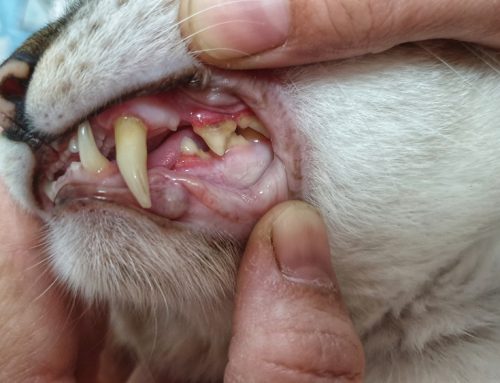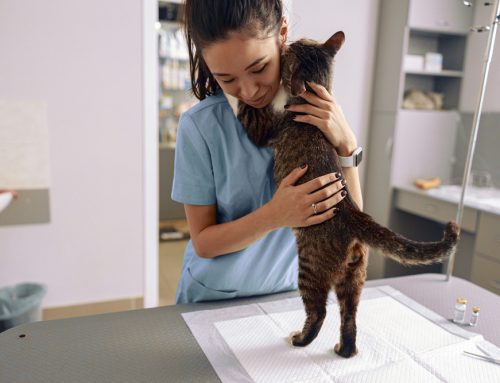Although different species, animals and humans can share some contagious diseases. According to the U.S. Centers for Disease Control and Prevention (CDC), more than 250 diseases can be transmitted from pets and other animals to people worldwide. The number of zoonotic diseases in the United States is closer to 40, and only a handful are clinically significant for people living with dogs and cats. Some zoonotic diseases—those which can be transmitted from animals to humans—can be deadly or cause serious long-term repercussions. Read our Neighborhood Veterinary Centers of Wallisville team’s guide to zoonotic disease risk and myths. Our goal is to empower you to take the necessary measures to live safely in harmony with your pet.
Who is most at risk for contracting a zoonotic disease from their pet?
Anyone can contract a disease from their pet, but people most at risk are children, older adults, and those with compromised immune systems from cancer, human immunodeficiency virus (HIV), autoimmune disease, organ transplants, or other chronic illness. Children are at higher risk because they are less likely to practice proper hygiene, and have immature, easily overwhelmed immune systems. Most healthy people can live safely with their pets, but immunocompromised people should take extra precautions.
What diseases can my pet transmit?
Not all infectious diseases that your pet may contract are zoonotic. The most common diseases transmitted from pets to human family members include:
- Ringworm — The athlete’s foot fungus—not a worm—causes this skin disease, which manifests as round, scaly skin areas with hair loss. People and pets can transmit ringworm back and forth until all household members have fully recovered. Ringworm is a big problem among shelter cats, especially long-haired breeds.
- Salmonella — Although they show no illness signs, reptiles, poultry, and rodents often carry salmonella. Dogs and cats can become infected from contaminated food or water and subsequently pass the bacteria to you. Salmonella causes vomiting, diarrhea, and sometimes dehydration.
- Toxoplasmosis — Toxoplasma is a parasite some cats have, and they can pass this organism in their feces. People can contract toxoplasmosis from contaminated food, water, or soil, from undercooked meat, or from their cats, but most do not become ill. If a pregnant person is infected with toxoplasmosis shortly before conception or while expecting, the baby’s health is at risk. Before becoming pregnant, cat owners can take a blood test that determines whether they have been infected with Toxoplasma.
- Cat scratch disease — A flea bite can infect a cat with the Bartonella henselae. However, an infected cat typically becomes a disease carrier rather than becoming sick. You can become ill from an infected cat’s bite or scratch. As a result of the bacteria entering the wound, you can develop lethargy, fever, and swollen lymph nodes.
- Leptospirosis — The urine of infected rodents and other wildlife spreads the bacteria, contaminating ponds, lakes, or soil. Leptospirosis causes a pet to experience serious illness—with kidney and liver problems. Humans who come in contact with infected urine or feces can also become ill.
- Giardia and Cryptosporidium — These parasites often contaminate water systems in developing countries, but your pet can also contract these organisms from puddles or other outdoor water sources. You can then contract the parasite from contact with an animal’s infective feces.
- Roundworms and hookworms — Dogs and cats often contract these common intestinal parasites, and people are occasionally infected as well. Roundworm larvae can travel throughout the body and damage the nervous system, organs, or eyes. If you walk barefoot on contaminated soil, hookworms can enter through your skin.
- Rabies — In nearly all cases, rabies causes devastating neurologic damage and death. Infected wildlife transmit the disease through saliva, and an infected pet can then do the same. Vaccination can prevent your pet from contracting rabies, and, in turn, prevent your pet from transmitting the disease to you.
How can I prevent my pet from transmitting zoonotic disease?

To reduce your household’s disease risk, keep your pet healthy, keep your home and yard clean, and practice essential hygiene. To protect your family from zoonotic diseases, follow these tips:
- Keep up with routine pet medical care — Vaccines can prevent your pet from contracting some zoonotic diseases, and regular wellness and fecal testing help detect disease-causing parasites.
- Administer flea, tick, and heartworm prevention — Ensure your pet receives their regular flea and tick prevention to kill these vectors before they transmit disease. In addition, administer heartworm preventives that contain ingredients to control intestinal worms.
- Scoop litter boxes daily — Toxoplasma, roundworms, and other intestinal parasites are not immediately infectious, so scooping your cat’s litter box daily can remove the threat and greatly reduce disease transmission. Pregnant people should have someone else clean their cat’s litter box, or wear gloves and wash their hands thoroughly afterward.
- Cover outdoor sandboxes — Sandboxes look like giant litter boxes to stray, feral, and outdoor cats, and wildlife such as raccoons. Several parasites’ eggs can threaten your child’s health if your sandbox becomes a public litter box.
- Pick up feces immediately — Most parasites cannot infect you immediately after your pet passes them in their feces, but if you leave this waste matter to contaminate your home or yard, the eggs can infect you later.
- Wash your hands frequently — Wash your hands after handling exotic pets, puppies, and kittens, and teach children to do the same.
Zoonotic disease transmission is relatively uncommon. In addition, studies have shown that the benefits of having pets greatly outweigh healthy people’s low health risks. Pets are good for our physical, mental, emotional, and social health, and our world would be vastly different—arguably darker—without them. Our Neighborhood Veterinary Centers of Wallisville team can help you keep your pet healthy and disease-free. Schedule a visit with our team to update your pet’s vaccinations, discuss parasite preventives, and learn additional strategies for preventing your pet from transmitting an infectious disease to you and your family.






Leave A Comment